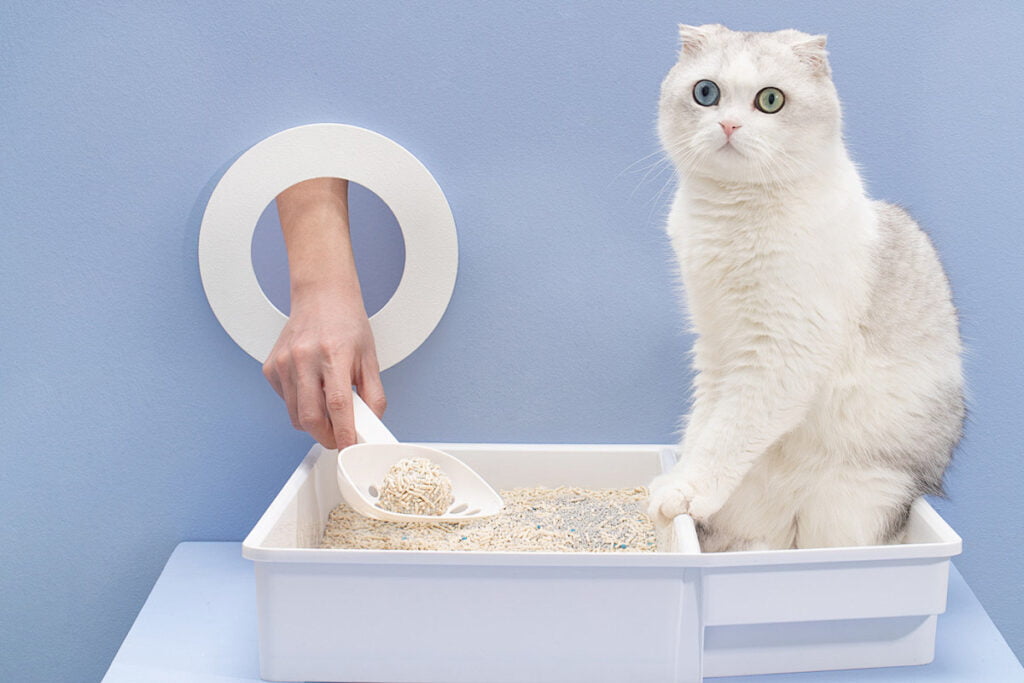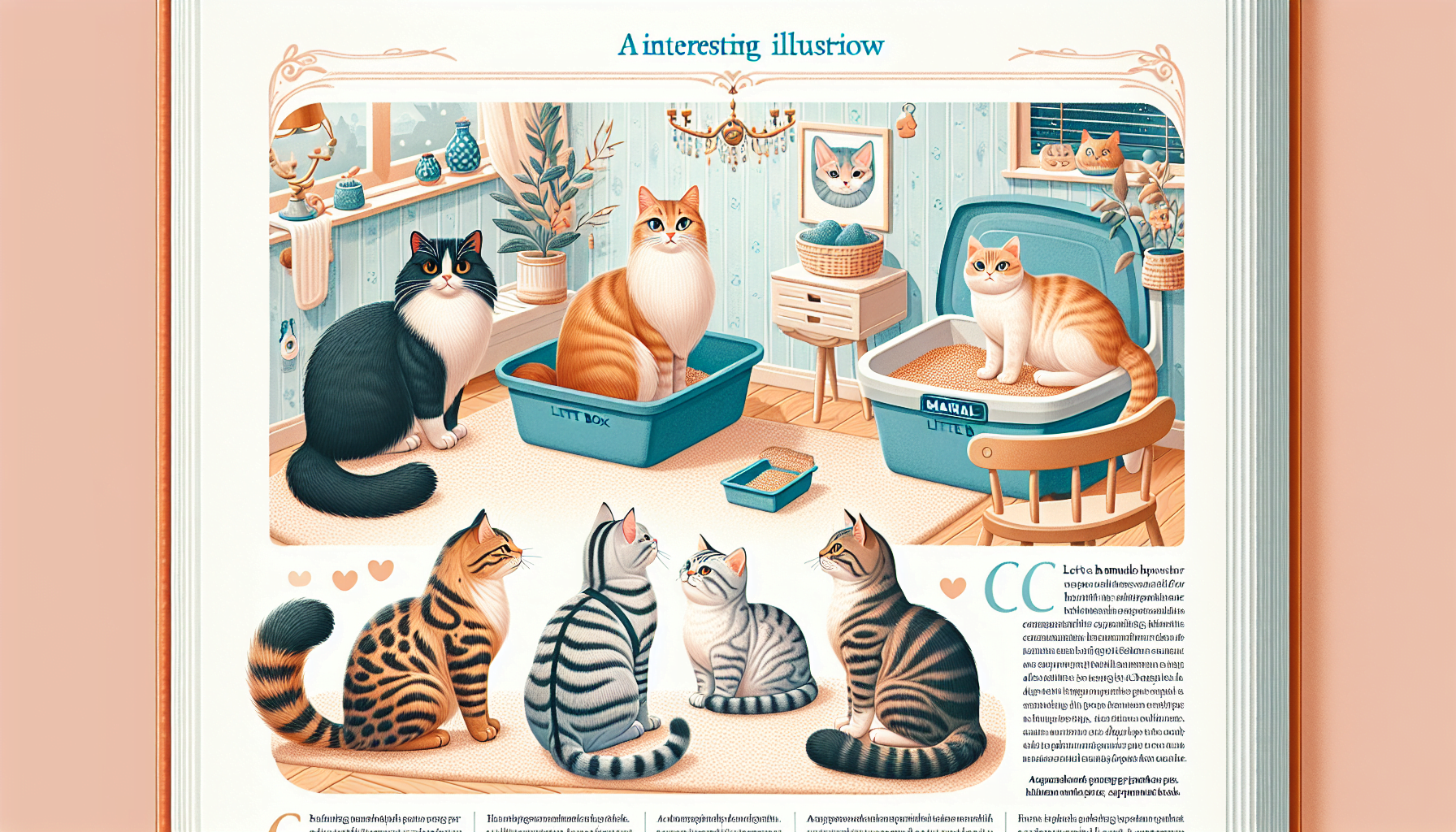One common question among cat owners is whether or not cats can share a litter box. The answer to this question depends on a few factors, including the number of cats in a household and their individual personalities. In general, it is possible for cats to share a litter box, but there are some important considerations to keep in mind.
The Number of Cats in a Household
The number of cats in a household is an important factor to consider when deciding whether or not they can share a litter box. In general, it is recommended to have one litter box per cat, plus an extra one. This means that if you have two cats, you should ideally have three litter boxes.
Having multiple litter boxes helps to prevent territorial issues and reduces the chances of litter box avoidance. Cats are naturally clean animals and prefer to have their own space when it comes to eliminating. By providing multiple litter boxes, you are giving each cat their own designated area, which can help to reduce stress and promote good litter box habits.
Individual Cat Personalities
While it is possible for cats to share a litter box, it is important to consider the individual personalities of your cats. Some cats are more territorial than others and may not feel comfortable sharing their litter box with another cat. If you notice any signs of aggression or stress when your cats are using the same litter box, it may be best to provide them with separate boxes.
Additionally, some cats may have specific preferences when it comes to their litter box. For example, one cat may prefer a covered litter box, while another may prefer an open one. By providing each cat with their own litter box, you can cater to their individual preferences and ensure that they are comfortable when using the litter box.
Tips for Sharing a Litter Box
If you have multiple cats and want them to share a litter box, there are a few tips you can follow to make the process smoother:
1. Provide Multiple Litter Boxes
As mentioned earlier, it is recommended to have one litter box per cat, plus an extra one. This helps to prevent any potential conflicts and ensures that each cat has their own designated area.
2. Keep the Litter Box Clean
Cats are clean animals and prefer to use a litter box that is kept clean. Make sure to scoop the litter box daily and change the litter regularly to maintain a clean and odor-free environment.
3. Choose Suitable Litter
Selecting the right litter is crucial. Consider factors such as texture, odor control, and dust levels. Cats have different preferences, so experiment with various types to find what works best for your feline friends.
We recommend tofu cat litter and mixed litter. Tofu litter, derived from natural materials, offers exceptional odor control, safety, and clumping abilities. Mixed litter maintains optimal hygiene and odor control while offering a customizable litter experience for discerning cats and their owners.
4. Choose the Right Litter Box
Consider the preferences of your cats when choosing a litter box. Some cats prefer covered boxes for privacy, while others prefer open ones. Experiment with different types of litter boxes to see what works best for your cats.
5. Monitor Your Cats’ Behavior
Keep an eye on your cats’ behavior when they are using the litter box together. Look out for any signs of stress, aggression, or litter box avoidance. If any issues arise, it may be best to provide separate litter boxes for each cat.
Strong Recommendation Against Sharing
While it’s feasible for cats to share a litter box under certain circumstances, there are compelling reasons to avoid this practice whenever possible. Sharing a litter box can lead to various issues that compromise cats’ health and well-being. Here’s why:
- Hygiene Concerns: Sharing a litter box increases the risk of bacterial buildup and the spread of diseases among cats. Despite regular cleaning, it’s challenging to maintain optimal hygiene levels in a shared environment, potentially exposing cats to health hazards.
- Territorial Disputes: Cats are inherently territorial creatures and may become stressed or anxious when forced to share resources like litter boxes. Territorial disputes can escalate into aggression or avoidance behaviors, disrupting household harmony.
- Preference Variability: Cats have diverse preferences when it comes to litter box type, location, and cleanliness. Sharing a litter box may not accommodate individual preferences, leading to dissatisfaction and potential litter box aversion.
- Monitoring and Intervention: When cats share a litter box, it becomes challenging for owners to monitor each cat’s elimination habits adequately. Early detection of health issues or changes in behavior becomes arduous, potentially delaying necessary veterinary intervention.
In Conclusion

While it is possible for cats to share a litter box, it is important to consider the number of cats in a household and their individual personalities. Providing multiple litter boxes and monitoring your cats’ behavior can help to ensure that they are comfortable and stress-free when using the litter box. Remember to keep the litter box clean and choose the right type of litter box for your cats’ preferences. By following these tips, you can create a harmonious litter box environment for your furry friends.

